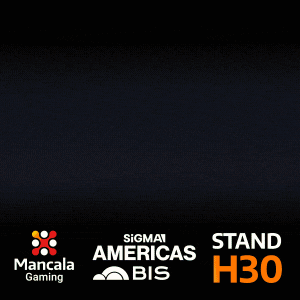Zona de Azar USA – As Gaming Industry Grows, Problem Gambling Needs to be Addressed
 USA.- December 2nd 2021 www.zonadeazar.com With sports betting spreading across the country and professional leagues embracing sponsorships and partnerships with sports books, the notion that gambling is an illicit, illegal act has faded away. No longer do bettors have to seek out the neighborhood bookie or turn to offshore sites to wager on a game’s outcome.
USA.- December 2nd 2021 www.zonadeazar.com With sports betting spreading across the country and professional leagues embracing sponsorships and partnerships with sports books, the notion that gambling is an illicit, illegal act has faded away. No longer do bettors have to seek out the neighborhood bookie or turn to offshore sites to wager on a game’s outcome.
But the flip side of legalization is that vulnerable populations are increasingly exposed to ads by sports betting companies that may entice them to gamble.

“The increase of advertising clearly leads to an increase in people with problem-gambling issues,” said IGT President of Sports Betting Joe Asher Tuesday during the panel discussion “The Importance of Player Protection: A View from the Top” at the Player Protection Summit in Manhattan. “We all make our living off of gambling, and we need to acknowledge that.”
Hosted by Epic Risk Management at Jay Z’s 40/40 Club, the inaugural event served as the kickoff to the SBC Summit North America that took place yesterday and is taking place today at the Meadowland Exhibition Center in Secaucus, New Jersey. Featured sponsors were Entain Foundation U.S., Sightline Payments, and Sportradar.
The panel, moderated by Paul Buck, CEO of Epic Risk Management, was blunt in its assessment of gambling problems. GeoComply Founder Anna Sainsbury noted that when new sports betting markets open, legislators quiz operators about age and ID, geolocation, and responsible gambling.
“But what we’re seeing in the trends over time,” Sainsbury said, “is that our systems and processes in the industry aren’t really supporting responsible gaming as holistically as we’re making sure random number generators are managed. I think as the industry is opening up, which is something we’re getting to see at the moment, we have this opportunity to put responsible gaming into the fundamental platforms that we have to ensure compliance and integrity in the rest of our systems.”
The avalanche of sports betting advertising was scrutinized during the discussion, with Asher admitting it’s a hard issue to fix, due to the number of operators seeking market share. During football games, the NFL has capped the number of sports betting commercial at six.
But Asher said there are no limitations on pre- or post-game shows and at other times during the day.
“You have all these opportunities for people to advertise,” Asher said. “And there might only be one or two of the Caesars’ commercials. Maybe there’re a couple of Jamie Foxx for BetMGM and there might be a couple for DraftKings and FanDuel. … You have all these other operators, so even if one company is advertising once or twice, that really doesn’t sound like it’s too many over the course of an evening.”
“It’s a very complex and complicated issue,” Asher added, noting one solution could be media companies limiting the number of sports betting commercials, perhaps with gaming operators bidding for airtime during programming hours.
American Gaming Association CEO and President Bill Miller acknowledged the existence of problem-gambling issues. But since 2018, when the Professional and Amateur Sports Protection Act (PASPA) was repealed, Miller said more and better ways to address issues have emerged, notably his organization’s “Have a Game Plan. Bet Responsibly” initiative.
“I believe we’re creating a market where there was none, in a legal, transparent, and safe way,” Miller said. “The advertising … that Joe (Asher) referred to, it is going to rationalize and become normal. It’s going to normalize itself or it’s going to be normalized by politicians. The question is, who takes the reins of that?”
Richard Schuetz, a gaming consultant who worked as an executive at the Stratosphere, the Stardust, and the Frontier in Las Vegas and with the California Gaming Commission, said the industry works best when it polices itself. Noting that years ago, the industry was in peril due to involvement of “inappropriate people,” Schuetz said that operators in Nevada ultimately came together to “legitimize the industry with an appropriate regulatory structure. I believe we’re in another era now where the industry needs to protect itself from itself,” he said.
Part of the problem, according to Schuetz, is that politicians seek positions on gambling committees “because they’re absolutely wonderful fundraising platforms. And no one’s handing them money for problem gambling and no one’s handing them money for regulations,” Schuetz said. “Those paths aren’t out there and I think that’s a terrible problem we’re experiencing right now.”
Rege Behe, CDC Gaming Reports.
Edited by: @MaiaDigital www.zonadeazar.com








































